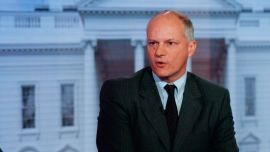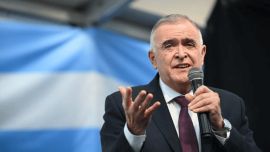Argentina’s goal to reach an agreement with the International Monetary Fund on a new programme by May 2021 is an ambitious timeline, according to the the Fund's Western Hemisphere Director Alejandro Werner.
“I don’t see it as unviable, but clearly it’s an ambitious date,” Werner said Monday during a virtual IMF press briefing. “The Argentine authorities are obviously working very hard on dealing with the need to be able to reach a deal by May.”
Argentina is negotiating a new programme with the IMF to push out payments on US$45 billion the country owes the institution from a previous deal. Economy Minister Martín Guzmán has repeatedly said he would find it “acceptable” to reach a deal by May, when Argentina has a separate debt payment scheduled with the Paris Club, a grouping of mostly western government creditors.
Although plenty of time remains to negotiate, no substantial progress has been made between Argentina and the IMF in the six months since Guzmán sealed an agreement on Argentina’s debt restructuring with private creditors. Werner’s comment also follows a remark last Friday by IMF Managing Director Kristalina Georgieva.
“You know the saying in Argentina: ‘It takes two to tango,’ so both sides need to do our part and find a pathway to an agreement,” Georgieva said Friday speaking to reporters.
Investors see a gap between Argentina and the IMF over how fast the country will cut spending, especially amid this year’s mid-term elections. The government’s current primary fiscal deficit target for 2021 is 4.5 percent of gross domestic product. Bank of America economists anticipate that the IMF deal would actually include a primary fiscal deficit target of 3.5 percent of GDP.
Argentina’s IMF agreement could establish a credible economic plan that will eventually help the country stabilize and return to financial markets after it defaulted last year. Argentina’s economy has contracted for three straight years and now faces double-digit unemployment with inflation projected to reach 50 percent in 2021.
related news
by Eric Martin & Patrick Gillespie, Bloomberg



















Comments